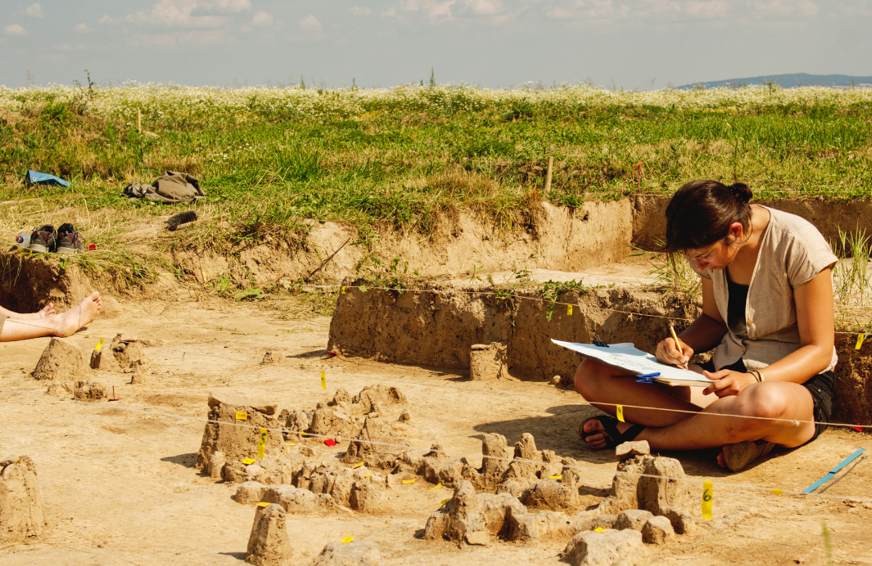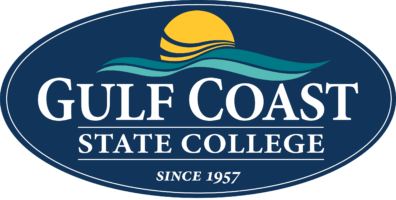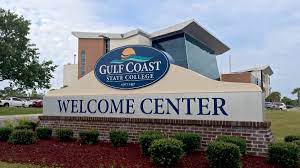
Unearthing St. Andrews’ Secrets: GCSC Archaeology Project
Panama City, FL – The Spring 2024 Introduction to Archaeology class at Gulf Coast State College, led under the direction of Dr. Jason Wenzel, continued an archaeological survey of the G.M. West House site in the Old Town neighborhood of St. Andrews in Panama City, Florida, this semester.
The property surveyed is currently owned and inhabited by Ray and Mila Bentz, who graciously allowed the team to continue the archaeological survey as an ongoing project over the past year. GCSC students have worked alongside community volunteers, uncovering evidence of over 1,000 years of Panama City’s history. This includes recovery of pre-Columbian Native American pottery sherds, stone tool flakes, and the remains of the foods the Indigenous peoples procured in the forms of animal bone and shellfish. The team has also recovered historic-period artifacts associated with the first settlers of the original “lost” town of St. Andrews (1827-1863), and later residents in the area, most particularly the West family, one of Panama City’s founding families. Examples of historic-era artifacts associated with these settlers include fragments from a variety of household goods and architectural items including ceramic dishes, glass bottles, clothing buttons, cut nails, and brick and window glass fragments.
“Our students are diving into our community’s cultural past, exploring its history firsthand. They’ve been engaging in archaeological fieldwork and lab research, uncovering relics of the past while actively engaging with our community. It’s not just about discovering ancient artifacts; it’s about understanding our shared heritage and contributing to its ongoing story,” said Dr. Jason Wenzel, GCSC professor.
The property currently under study by the archaeological team, located on West Beach Drive, is home to one of Bay County’s oldest structures, the “G.M. West House,” built around 1887, and named after one of Panama City’s founding fathers George Mortimer West. Upon inspection of the 1855 U.S. Coastal Survey Map and property deeds, the G.M. West House site is believed to overlay the location of where retired Georgia Governor John Clark settled with his family in 1827, where they constructed a two-story log cabin. The Clark family perished five years later after succumbing to yellow fever, and it is believed that their home was repurposed as a tavern for the original town of St. Andrews, until its likely destruction during the American Civil War in 1863.
The project operates in partnership with the Panama City Publishing Company Museum, the Historical Society of Bay County, and the Bay County Anthropological Society.
An exhibit is planned for the Panama City Publishing Company Museum in 2027, as part of the 200-year anniversary of the founding of St. Andrews.
For more information, please contact Dr. Jason Wenzel at jwenzel@gulfcoast.edu.
Angela Small
Radio Production Assistant














